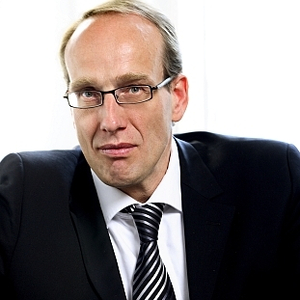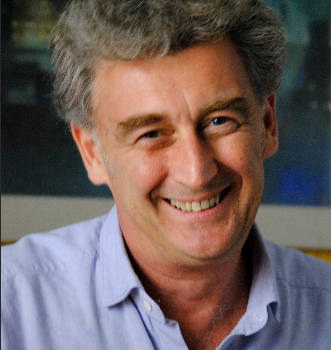- Info
Key-note Speakers

Georg Northoff, MD, PhD, EJLB-CIHR is Michael Smith Chair in Neurosciences and Mental Health, Canada Research Chair for Mind, Brain Imaging and Neuroethics at the University of Ottawa Institute of Mental Health Research (IMHR), Ottawa, Canada.
Philosopher, neuroscientist and psychiatrist, holding degrees in all three disciplines. Being originally from Germany, now working in Ottawa/Canada where he researches the relationship between the brain and mind in its various facets. Driving question is: why and how can our brain construct subjective phenomena like self, consciousness, emotions. http://www.georgnorthoff.com/
Main Books: Neuropsychoanalysis in Practice: Brain, Self and Objects (OUP, 2011); Unlocking the Brain: Volume 1 (OUP, 2013), Unlocking the Brain: Volume 2: Consciousness (OUP, 2014); Minding the Brain: A Guide to Philosophy and Neuroscience (McMillan, 2014); Neuro-Philosophy and the Healthy Mind: Learning from the Unwell Brain (Norton, 2016) (Italian Translation La neurofilosofia e la mente sana. Imparare dal cervello malato, Cortina, 2019); The Spontaneous Brain. From the Mind–Body to the World–Brain Problem (MIT Press, 2018); Neuropsychodynamic Psychiatry (Springer, 2018)
ICATA 2019 Lecture: The self and its psychotherapy. A brain-based approach --- The concept of self was dealt with originally in philosophy and most recently has entered neuroscience. The self also plays a central role in psychotherapy as it is ultimately the self that needs to be healed and stabilized by psychotherapeutic means. Here I report latest findings from the neuroscience of self and suggest what they imply for a proper brain-based individualized psychotherapy of self that focuses on the relational aspects and nature of the self. Essentially, I will characterize the self in a relational and spatiotemporal way rather than in a in isolated and cognitive way. Possible psychotherapeutic implications will be discussed.

Giovanni Stanghellini, M.D., PhD, is Professor and Chair of Dynamic Psychology at the University G. D’Annunzio, Pescara-Chieti, Italy
Psychiatrist, he has written extensively on the philosophical foundations of psychopathology, especially from a phenomenological and anthropological viewpoint. He is co-editor of the Series International Perspectives in Philosophy and Psychiatry (Oxford University Press) and associate editor of the journal Psychopathology. He has founded (with K.W.M. Fulford and J.Z. Sadler) the International Network for Philosophy and Psychiatry. http://www.giovannistanghellini.it/
Main Books: Disembodied Spirits and Deanimated Bodies. The psychopathology of common sense (OUP, 2004); Emotions and Personhood: Exploring Fragility - Making Sense of Vulnerability (OUP, 2013); Lost in Dialogue: Anthropology, Psychopathology, and Care (OUP, 2017); An Experiential Approach to Psychopathology: What Is It Like to Suffer from Mental Disorders? (Springer, 2017) -- In Italian: Antropologia della vulnerabilità (Feltrinelli, 2006); Psicopatologia del senso comune (Cortina, 2008); Psicologia del patologico. Una prospettiva fenomenologica-dinamica (Cortina, 2009); Noi siamo un dialogo. Antropologia, psicopatologia, cura (Cortina, 2017)
ICATA 2019 Lecture: The PHD method for psychotherapy integrating phenomenology, hermeneutics and psychodynamics --- I will present a synopsis of the PHD psychotherapy method, based on the integration of phenomenology, hermeneutics and psychodynamics. I will first cover the issue of background knowledge required for PHD psychotherapy, consolidating and extending three basic concepts: life-world (the originary domain of a person’s experience), dialectical principle (psychopathological symptoms are the result of a disproportion between the occurrence of alterity and the person’s capacity to make sense of it), dialogical principle (we are human insofar as we can engage in dialogue). Then I will describe the know-how or practical implementation of these principles, including (1) the phenomenological unfolding (P) of the patient’s experiences, which equips the clinician and patient with a systematic knowledge of the abnormal phenomena that affect the patient and are part of her life-world; (2) the hermeneutic moment (H), which focuses on the patient’s default interpretation of her experiences and then encourages her to actively take a different perspective towards her experiences, aiming at the re-signification of these experiences in order to restore a sense of agency or responsibility: (3) the psycho-dynamic moment (D), which aims to contextualize the patient’s psychopathological experiences and position-taking within the personal life-history in which they are embedded, and to trace back psychopathological symptoms to the limit-situation from which they emerge. In the final part of my talk I will discuss the “something more” or knowing how-to-be that is required of a clinician who aims to apply this therapeutic method; it includes a concise discussion of how psychotherapeutic dialogue is a kind of practice that moves in unpredictable directions to experience something new for both partners.


